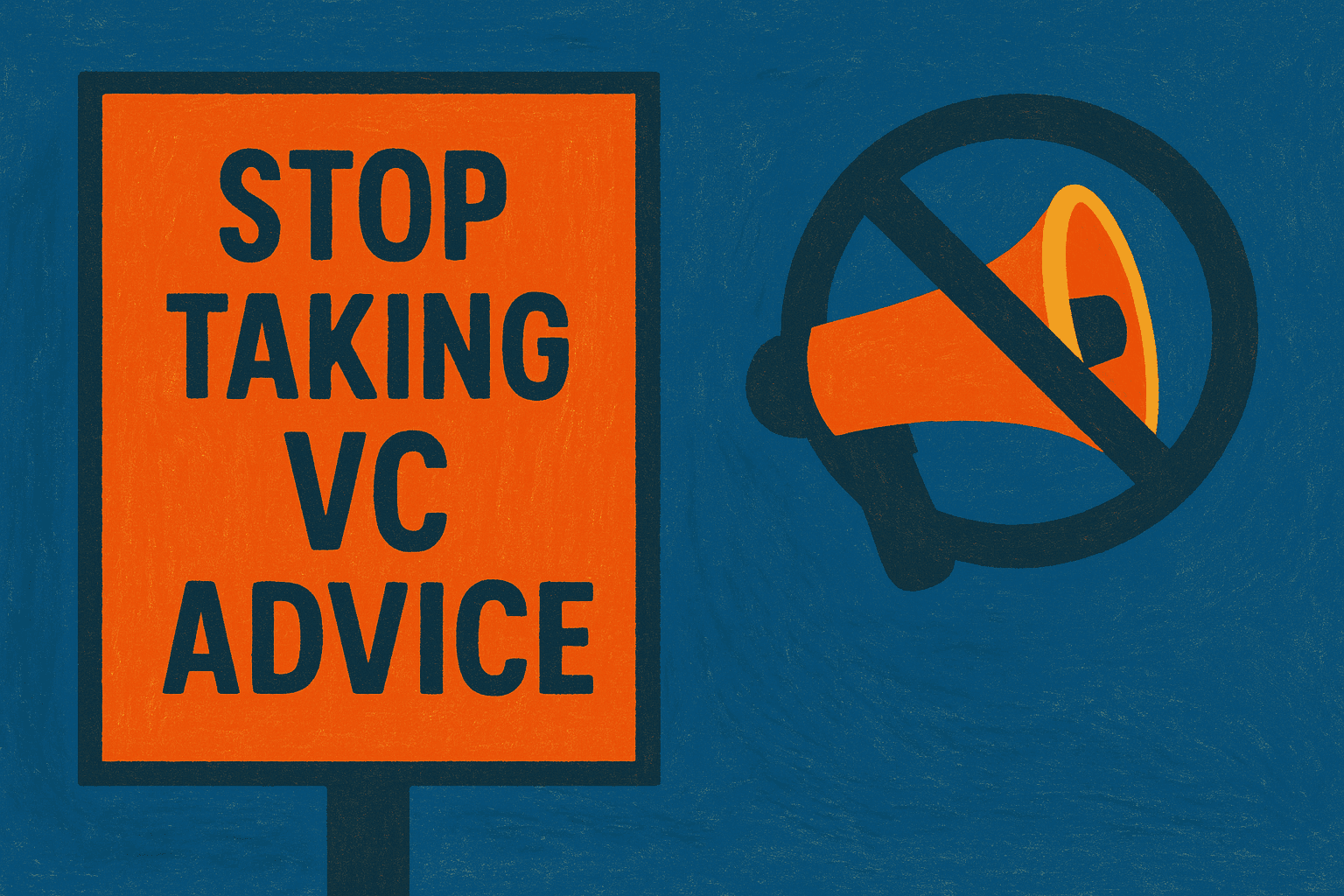Real talk from a technical founder building AI-powered businesses
Published September 9, 2025 • Based on Founder Reality Episode 15
Also available on: Apple Podcasts • Spotify • YouTube
I saw a LinkedIn post yesterday that made me physically cringe. A well-known Silicon Valley VC telling founders to "move back to SF" because "being successful as a founder is about luck, so you should maximize the chance that you can be lucky."
Here's another VC who's never built anything in his life telling everyone else what to do. And I'm going to tell you exactly why his advice is complete BS - because it's expensive, outdated, and completely disconnected from the reality of building companies in 2025.
The Problem With Chess Piece Advice
This VC talks about founders like we're chess pieces on his board. "You should move here. You should do this. You should maximize your luck."
But let me ask three simple questions:
- Has this guy ever stayed up at 3am debugging code?
- Has he ever had to choose between paying himself and paying his developer?
- Has he ever had customers screaming at him because something broke and he's the only person who can fix it?
I doubt it. Because if he had, he'd understand that building a company isn't about geographic proximity to Sand Hill Road. It's about proximity to your customers, your problems, and your solutions.

The 2025 Reality: You Can Build From Anywhere
Six years ago, when I was building SimpleDirect, maybe this advice would have made sense. Different time back then - right after the pandemic, Silicon Valley was the center of everything, interest rates at zero, VC industry hotter than ever.
But today I'm running my companies from Toronto, Canada. SimpleDirect serves contractors across the United States - people doing kitchen remodeling in Ohio, bathroom renovations in Texas.
Those customers don't care if I'm in San Francisco or Bangkok. They only care if the product works.
None of my ANC consulting clients have asked "Do you have an office in Palo Alto?" They just want to know if I can help them build something that makes money.
The Bootstrap Reality Check
Here's what VCs don't understand: the cost of bootstrapping in 2025 has gone essentially to zero.
I've lived this evolution - building companies in 2020, 2022, and 2025. These are completely different timelines. We're building two great companies with just five people, very simple SaaS tools, self-hosted infrastructure, and incredibly low monthly burn.
Moving to a city where a single bedroom easily tops $6-8K and finding housing is nearly impossible? That's not practical advice for founders. That's stress you don't need as a bootstrap company.
If you have parents, start your company from their basement or garage. There's no shame in saving capital to reinvest in your business instead of San Francisco rent.
The Venture Capital Reality
Here's the truth about VC funding in 2025: venture capital in the US is rising 60-70% year over year, but most of that capital goes to AI startups. If your company name doesn't end with "AI," you're likely not getting funding.
If you're building the next ChatGPT or burning cash as an LLM developer, then maybe you need to move to SF. But if you're an AI-enabled business (which 99% of the current "AI crowd" actually is), there's still no reason to uproot your life.

The AI Advantage Changes Everything
With AI, my team can:
- Write code with AI assistance
- Let AI handle customer support while maintaining satisfaction rates
- Create content while maintaining our values and principles
- Analyze data and create reports
- Write blog posts and social media content
My team in South Asia and Africa uses the same AI tools that teams in San Francisco use. There's really no difference in access to tools or information if you're a founder who gets things done.
We're In An AI Bubble
Sam Altman himself has admitted we're in an AI bubble. When it pops - and it will pop like the dot-com bubble - where do you think those founders who structured their entire business around VC funding will be?
Want the full playbook? I wrote a free 350+ page book on building without VC.
Read the free book·Online, free
We see the glamorous side of OpenAI and Anthropic raising at massive valuations. We don't see what happens when the cycle ends.
The Real Network Effects
I personally know founders who moved to SF, raised money, burned through it because VCs told them to "go fast," and ended up selling their company for nothing. I also know founders living in Southern France and Eastern Europe making seven-figure businesses that VCs call "lifestyle companies."
Ask yourself: which is more inspiring? The company that raises hundreds of millions, goes bust, and leaves everyone with nothing? Or the one that makes tens of millions consistently with a team of less than 10 people and no investors?
The real network effects come from knowing founders who are actually building, not from attending SF networking parties where real technical founders are probably at home coding instead.

My Challenge to You
Stop taking advice from people who've never done what you're trying to do.
VCs have never built bootstrap businesses. They've never tried to make something profitable from day one. They've never had to choose between growth and survival. They make 1-2% annually from their LPs through management fees and performance fees.
You are a piece on their chessboard. They have many pieces - that's why they call it a portfolio.
VCs want you in SF because it makes their job easier. More board meetings in one day, more introductions between portfolio companies, easier to keep tabs on investments. But that's not your job as a founder.
The Sovereign Business Model
I've completely abandoned venture capital. I'm building my companies like a sovereign wealth engine - we compound equity and grow forever, like Berkshire Hathaway, instead of exiting.
How can you optimize for decades, not quarters?
Your luck comes from solving real problems for real customers, not from being in the same zip code as investors. While everyone else fights over expensive SF apartments and chases AI hype rounds, there's a massive opportunity for builders who think differently.
The Future Belongs to Independent Builders
The future belongs to founders who can build global businesses from anywhere, not from founders who think they need permission from Sand Hill Road to succeed.
Think about Amazon during the dot-com bubble - it almost crushed their stock price and nearly wiped out the business. But they kept going, and look where they are now.
Build something real, something that compounds, something people actually want. You'll stick around long after the bubble pops.

